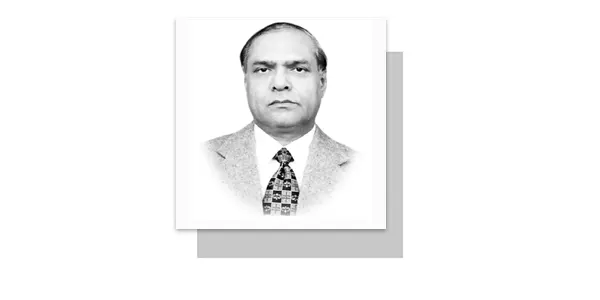STEPHEN Cohen, Doyen of South East Asia wrote in 2002, that Pakistan, as a State has been failing for many years and the collapse of the state wouldn’t just be a multidimensional Geo-strategic calamity, generating enormous uncertainties’, but ‘it is simply too big and potentially too dangerous for the international community to allow it simply to fail’. Once again, analysts fear that Pakistan is on the brink of disaster and even cautious voices are airing the possibility that this time the state may be unable to draw back from the edge of the abyss but it will always remain a wishful thinking for them. Pakistan will stay and it will be more stronger. However Pakistan has multiple security challenges- both from within and outside (hostile neighbours to be precise). Attacks in Pakistan have surged since the Taliban’s victory in Afghanistan. Most of them have been staged by TTP, a group that is ideologically and operationally aligned with the Taliban. The TTP are based in Afghanistan, and the Taliban have been unwilling to curb their presence there. Attacks rose by 28% in 2022 and a staggering 79% in the first six months of 2023.
Achieving true stability in Pakistan necessitates a strong civil society and political parties that are both effective and accountable. “Deep state” can take advantage of a pivotal moment to bolster democratic forces and strengthen them and mitigate suppression. The Pakistani public, long subjected to a cycle of politicians emerging from a limited set of families, must call for veteran political figures to endorse leaders who owe nothing to the deep state and are independent of influence from any corner. These leaders should chart a course that extends beyond dominance of one institution and self-centered populism and support popular leaders. They should prioritize domestic political and economic stability, along with the development of Pakistan.. Additionally, transparency and accountability within Pakistan’s security institutions is also essential. This involves rigorous personnel vetting, regular human rights and rule of law training, and clear guidelines for force and resource usage. Establishing an independent oversight body comprising respected figures from civil society, journalism, and academia could ensure the integrity of an oversight mechanism. A successful oversight body would prevent the misuse of resources to support militancy. Promoting a culture of accountability can help rebuild public trust, which unfortunately is at low ebb, presently.
During the Cold War, the United States was committed to containing the spread of communism and found a mutually strategic ally in Pakistan towards this effort. The United States provided military and economic aid to Pakistan following its independence from the British Empire in 1947, which continued throughout the Cold War era. In turn, Pakistan allowed America to establish an ideal geopolitical headquarters in South Asia between Afghanistan, particularly during the Afghan-Soviet War. India, with its Soviet-leaning foreign policy, remained close USSR but acting very cleverly, never annoyed USA. Hence, as a major non-NATO ally of the U.S., Pakistan gained access to U.S. military technology and training, as well as preferential treatment in arms sales and other forms of military assistance.
Therefore, when Pakistan’s political nemesis, India, successfully became a nuclear power in May 1974, Pakistan was able to accelerate its own nuclear weapons program using American aid and military technology . Initially, Pakistan’s ventures into nuclear power had been financed under the United States “Atoms for Peace” program during the 1950s and 1960s for the stated purpose of aiding in peaceful energy research. Pakistan always adhered to the commitment and been declaring repeatedly that its nuclear programme is purely for peaceful purpose.
But there have been some instances where we should have thought about our foreign policy directions which perhaps needed corrections. India has been against the creation of Pakistan and till today they have not accepted the reality of Pakistan. It has been suppressing Muslim-dominated people of Kashmir since 1947 and the reign of terror still continues. This one factor is the biggest irritant between India and Pakistan as they are not giving the Right of determination to them. We do not enjoy good brotherly relations with Afghanistan also due to their support to TTP which is partly responsible for terrorists attacks within Pakistan. Iran ,which once used to be our best ally has also some reservations about our policies.Their support to us during the 1965 war with India was exemplary. We need to remove these irritants to have peaceful borders.
Situation in Pakistan remains chaotic after the 2024 elections, and economic data shows that economic crisis will continue. According to the Bureau of Statistics, the inflation rate stood at more than 29% in January. Pakistan also has to manage roughly $30 billion in annual external debt obligations, as its foreign currency reserves continue to fluctuate. As of Feb. 9, total liquid foreign reserves stood at $13.15 billion, having previously fallen to just $4.1 billion in June 2023. According to State Bank of Pakistan data, Pakistan requires $6.1 billion for debt servicing before the end of the fiscal year (June 30). Its current account deficit stands at $269 million, which could further exacerbate the projected deficit of $6 billion that the government expects, thereby complicating Islamabad’s ability to fulfil its debt obligations.
Pakistan stands at a crossroads, grappling with consequences from its decisions over the past few decades. Choices made now will shape its future trajectory, determining whether it breaks free from instability or becomes an important international member, it once was. The path ahead necessitates introspection, accountability, and a genuine commitment to both domestic and international peace and stability by re-aligning our domestic and foreign policies in keeping with the realities in the world and above all keeping the welfare of our people as the prime goal.
—The writer is Former Civil Servant and Consultant (ILO) & International Organisation for Migration.
Email: [email protected]










